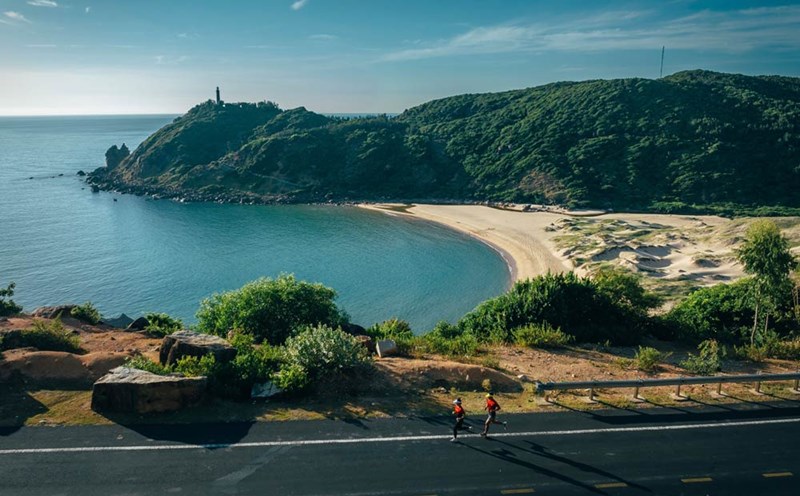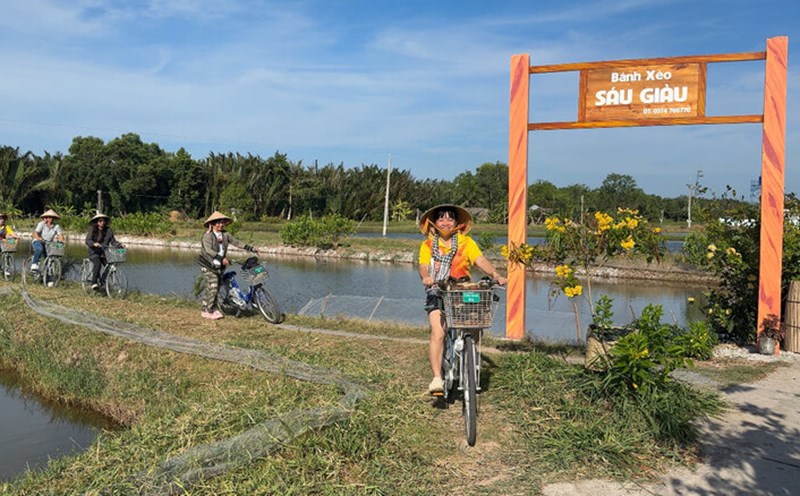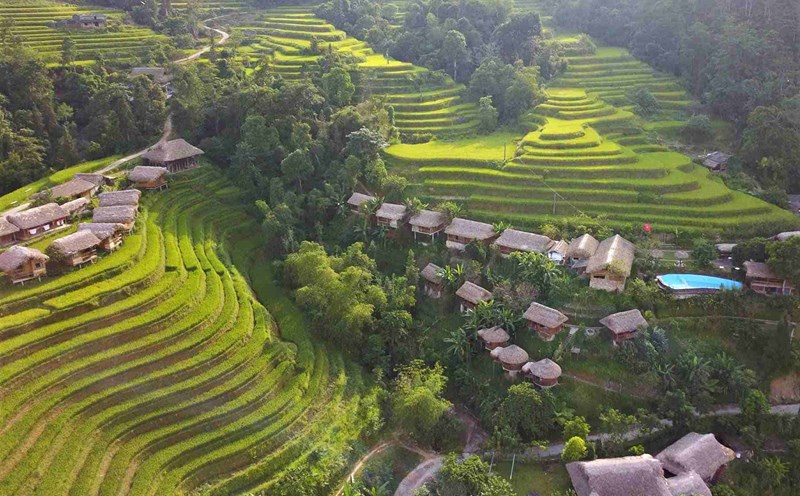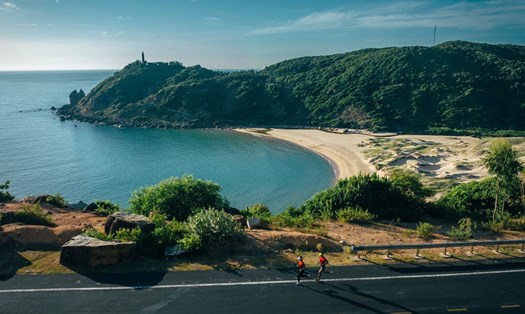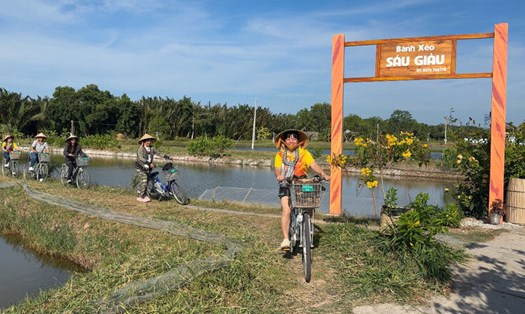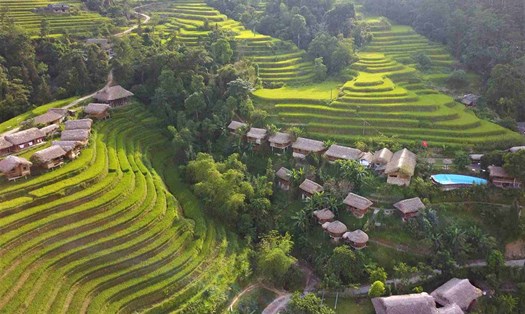In the global economic picture, tourism is often likened to a "smokeless industry", bringing huge benefits and connecting cultures. However, behind those rays of light are invisible but increasingly large pressures on the natural environment, indigenous resources and community identity.
In that context, the concept of green tourism has emerged not only as a trend, but as an inevitable requirement, a mandatory path to ensure harmonious and sustainable development for the future.
Lao Dong had a conversation with Ms. Mallory Ewer-Speck, Director of Sustainable Development of Thien Minh Group, about the trend of sustainable tourism development in Vietnam.

To open today's discussion, would you like to share an overview of the picture of sustainable tourism in Vietnam, especially the changes in the period when the tourism industry is recovering strongly after the pandemic?
I think that the trend of sustainable tourism development and green transformation is not a temporary trend but will be a steady and long-term orientation. This is not only a hot topic but has become a core element in the industry. The question is not whether this trend will continue, but how quickly this transition will take place and focus on which specific areas.
I hope and believe that this process will be accelerated in the coming time as the tourism industry is on the path to a strong recovery after the pandemic.
In your opinion, what are the main challenges in promoting sustainable tourism in Vietnam?
Vietnam is still in the process of attracting tourists, while ensuring economic development. The imposition of too many strict regulations can unintentionally hinder this development, especially for small and medium enterprises (SMEs) that account for the majority but lack resources.
Therefore, I think that building incentive mechanisms is a more effective solution than issuing mandatory regulations. Instead of setting a minimum standard for everyone, we can create incentive programs, financial support or competitions to honor and reward businesses that do better.
After all, this is a problem of balancing three factors: People - Planets - Profit. Policies need to be designed to both protect the environment, support the community, and ensure that businesses can operate effectively, maintain jobs and contribute to the economy.
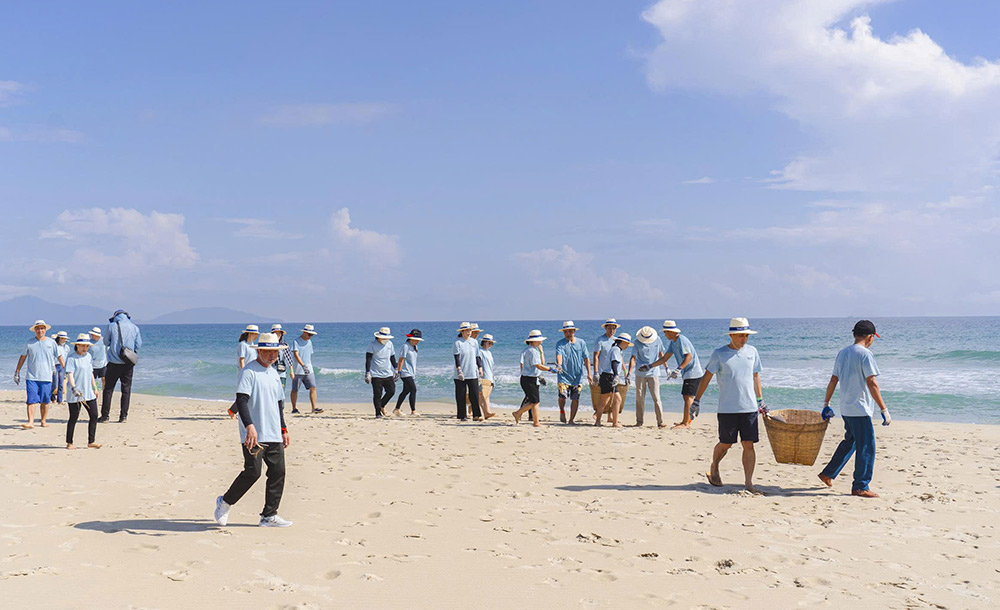
So what advice do you have for tourism businesses that are aiming for green and sustainable development without falling into the "greenwashing" trap?
The golden principle to avoid "greening" is: "Act first, communicate later". In the field of sustainability, we often talk too much about future plans that we forget what needs to be done right now. Businesses need to start implementing specific initiatives, then build a communication story based on practical results.
To do this, measuring and collecting evidence is an indispensable factor. greening is essentially exaggerating or lying the truth about ones sustained efforts.
Enterprises need to have specific data and figures. For example, instead of saying vaguely, we protect the environment, lets say we have cut carbon emissions by 25%, and thats how we measure it.
This not only helps you be transparent with the public but also helps businesses understand the real impact of their actions.
For businesses, especially small and medium-sized enterprises, that do not know where to start, I really encourage participation in third-party sustainability certification programs. These certification organizations will provide a clear roadmap, guiding you how to implement, measure and monitor standards.
Owning a reputable certificate is not only an authentic testament to your efforts, but also helps build stronger trust in customers. When consumers face many options, a reliable certification will be a clear competitive advantage, making it easier for them to make decisions.
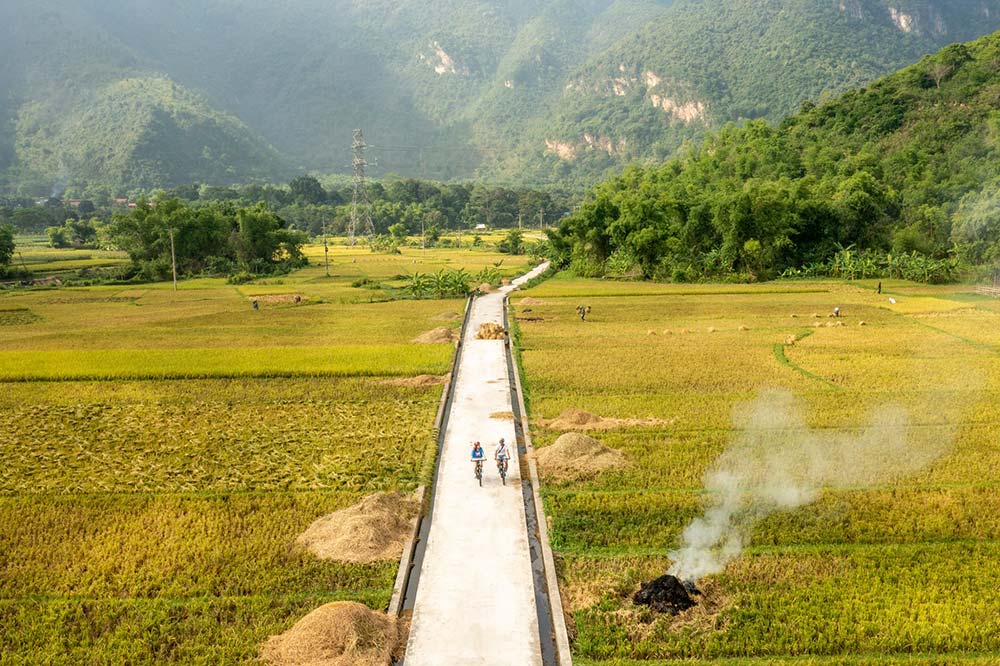
Green tourism is not a journey that only businesses strive for. How can businesses encourage and attract tourists to participate in responsible tourism activities?
The key is communication and connection. Instead of just giving camorious messages like "Don't waste water" or "Don't listen to garbage", we need to incorporate responsible activities into an inspiring story, helping visitors feel that they are having a deeper and more meaningful experience.
Today's tourists not only want to "check-in" at famous places, they are looking for a true connection with their destination. Businesses can take advantage of this by showing them that responsible action is a way to connect more deeply with indigenous culture and people. For example, encourage them to shop for local products, participate in a community tour, or simply learn about and respect customs and practices...
In addition, it is also very important to educate tourists about local issues skillfully. For example, let's share about the problem of plastic pollution in Vietnam and provide simple solutions that they can contribute to, such as using reusable bottles instead of bottled water.
When visitors understand the context and see that their small actions can make a difference, they will not feel forced, but on the contrary, they feel a part of the solution. This helps them connect with their destination in a deeper way, making the trip not only a vacation but also an opportunity to learn and contribute.
Thank you for sharing!


